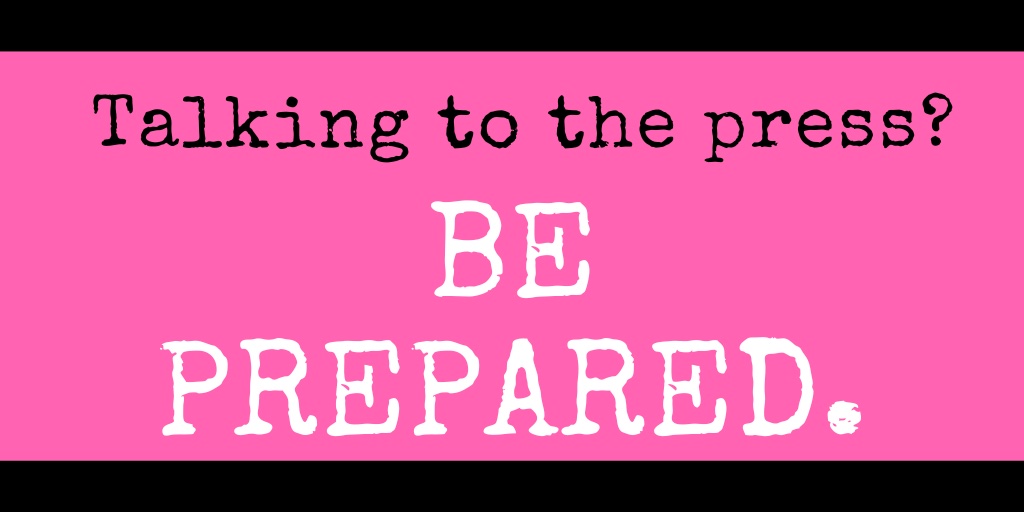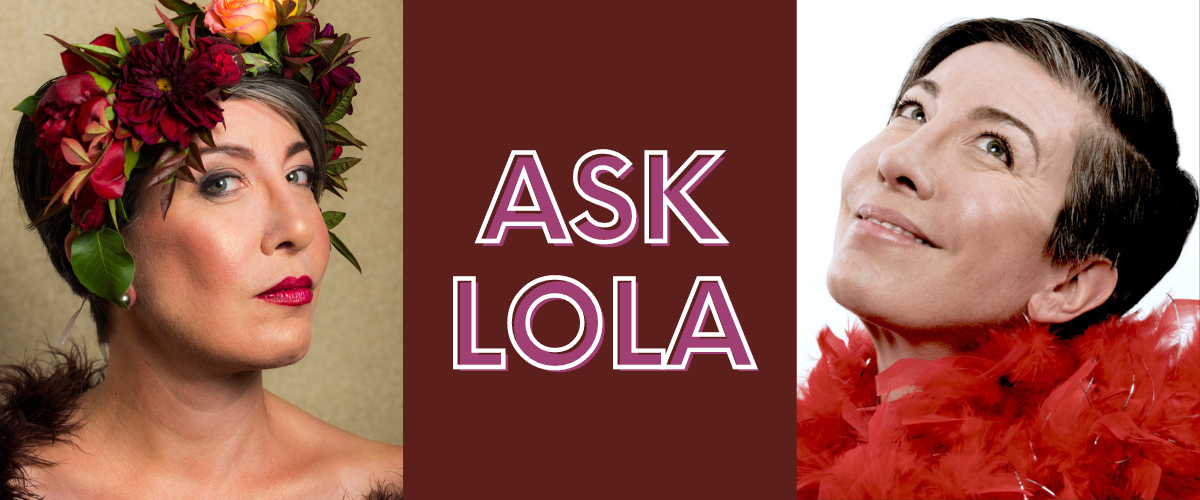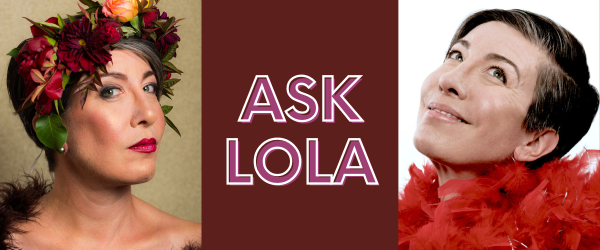Dear Lola: I recently got interviewed by a reporter about camming. As we were talking, nothing bad happened, but afterwards I kinda collapsed over it. I feel like I really messed up and said some stupid things. I’m dreading the article when it finally comes out. What should I do?
Signed–Queasy In Quebec

Dear Queasy–
I’m so sorry to hear you’re struggling. There’s a lot to unpack here. Since your situation involves the media, I’ll address that specifically today. Next month, I plan to talk more broadly about the emotional hangover many of us experience from public exposure and other forms of vulnerability.
First, I don’t know the particulars of your interview agreement, but as a general rule, if you ask, reporters should share their notes and give you an opportunity to correct the record. If afterwards you believe you misspoke or were unclear, don’t be afraid to advocate for yourself – after all, the words this journalist attributes to you are going out into the world as your opinions and positions. Fight to make sure they get it right.
Time is of the essence, however. Ideally, follow up with your interviewer within a day or two. Many journalists are working under tight deadlines, and once a piece is published it becomes much harder to claw back your quote. Most editors won’t issue a correction after publication to adjust tone or nuance, but only to set right a factual error, like misspelling someone’s name. You can learn more about how the media works and how to deal with it here.
Next, please don’t beat yourself up. Talking with the media about sex work is no small undertaking. I’m not looking to discourage you or anyone else from speaking out, since getting our voices heard is crucial for changing minds. However, it can be tricky, and even seasoned advocates can find their words twisted.
If you do decide to talk to the press, preparation is key.
I highly recommend checking out the Woodhull Freedom Foundation’s terrific 46-minute video, Media Training For Sex Workers, outlining strategies for getting your message across professionally and effectively. It’s well worth watching in full, but here are some highlights:
Research The Interviewer And The Media Organization
Know who you’re talking to.
Understand where your words are going to appear. It’s not necessary for the journalist or platform to hold the same worldview as you do for you to be effective. In fact, if we don’t ever talk to people who disagree with us, minds will never change. But it is vital to determine whether the interviewer has conducted professional, impartial reporting in the past. If a media outlet traffics in unflattering hitjobs on their subjects, don’t be naïve thinking you won’t be next.
This Is Not A Chat
When you sit down to talk to a reporter, it may look, sound, and feel like a casual conversation. It is not.
Not to imply anything sinister, but it is a journalist’s job to unearth newsworthy material and to elicit quotes that drive clicks. So, while this person may be friendly, they are not necessarily your friend. If you say something that can be convoluted into something inflammatory or controversial, they very well might run with it. My advice is to maintain a polite but wary posture. Toward that end…
Prepare Your Talking Points
Have a solid idea of what you’d like to say ahead of time.
You’re certainly within your rights to ask for questions before the interview – some reporters will give them to you, and some won’t. Either way, it’s helpful to jot down bullet points on the message you want to get out into the world.
You Don’t Need To Answer Questions Directly—Or At All
As unnatural as it might feel in regular conversation, you are under zero obligation to respond to any question you don’t wish to answer.
Politicians and PR people do this all the time: ignoring what was asked of them, then putting out their desired message instead. Don’t be afraid to say, “I’m not going to answer that,” or to redirect to your prepared talking points.
Also, don’t ever forget you’re doing reporters a favor.
They need quotable material to do their jobs. If they use a term you don’t like, tell them that’s not a word you use, and insist they use the language you prefer. If they come across as insensitive or intimidating, end the interview – no apologies or explanation necessary. Be clear that you rescind permission to be quoted or to have your name associated with their piece in any way.
Finally, when the article does come out, the self-care move is to have a trusted friend read it and give you the highlights. Then, unless there’s something truly egregious you need to fight back against, forget about it. Treat it as a life lesson, vow to be more prepared next time, and move on. Feeding the media beast isn’t worth feeling sick to your stomach.
Until next time, be sweet to yourself.
—LolaD.
—
Lola Davina is a longtime veteran of the sex industry and author of “Thriving in Sex Work: Sex Work and Money,” her follow-up to the formative “Thriving in Sex Work: Heartfelt Advice for Staying Sane in the Sex Industry,” is available wherever books are sold. You can find audio versions located at Audible, iTunes and Awesound. Contact Lola at Lola.Davina@ynotcam.com and visit her on Twitter at @Lola_Davina.










[…] month, a reader wrote me about crashing emotionally after giving an interview to the media. So this month, I want to dive deeper into the issue of […]
[…] Tips for Talking to the Media – July 4 […]